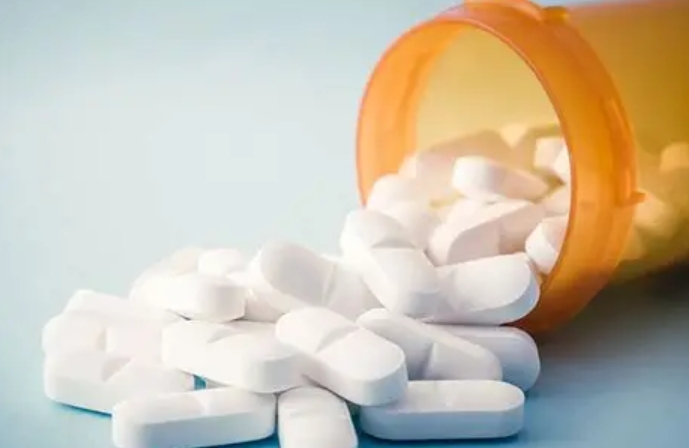"With in-house API manufacturing supported by accreditation, companies can reduce dependency"
July 03, 2025 | Thursday | Views | By Utkarsha Kesarkar
Pharmaceutical companies operate under intense scrutiny and rigorous standards. While consumers see the final product- a pill, injection, or treatment- they rarely witness the complex web of quality assurance, regulatory compliance, and accreditation processes that ensure their safety. To shed light on a critical yet often overlooked aspect of the pharmaceutical industry, i.e. accreditation Utkarsha Kesarkar spoke with Mukesh Parab, a seasoned pharmaceutical research professional with over 25 years of experience spanning product quality, compliance, regulatory affairs, and analytical research and development for both API and formulation businesses. His extensive expertise provides valuable insights into why accreditation serves as the backbone of pharmaceutical manufacturing and global trade.
image credit- shutterstock
Why is accreditation so crucial in the pharmaceutical industry?
The pharma industry deals with people's lives. Safety and health are the major concerns—there's no room for compromise. Accreditation is essentially the bridge between a manufacturer's promise and a patient's trust. When we're dealing with medications that people depend on for their health and sometimes their very survival, we need robust systems to ensure quality and safety at every step.
You mention patient safety as a core concern. How does accreditation specifically enhance patient safety?
At the core of accreditation lies patient safety. Accredited companies are required to adhere to Good Manufacturing Practices (GMP), which focus on hygiene, safety protocols, quality checks, and stringent documentation. Rigorous standards in manufacturing and quality control help reduce medication errors, prevent poor-quality or adulterated medicines from reaching the market, and most importantly, protect patients. It's a comprehensive approach that touches every aspect of pharmaceutical manufacturing.
India is often called the ‘Pharmacy of the World.’ How does accreditation play into this global positioning?
Indian pharma is indeed known as the 'Pharmacy of the World', but we need to comply with global accreditations to truly justify this label. Accreditation is essentially a passport to global pharmaceutical trade. Companies seeking to export their products must meet the regulatory requirements of the destination country. Authorities like the USFDA, UK MHRA, TGA Australia, SAHPRA in South Africa, and the EU's PICS lay down stringent guidelines that companies must follow to export their products globally. With approvals from bodies like the USFDA, Indian pharma companies unlock massive international business opportunities, particularly in regulated markets.
In such a competitive market, how does accreditation affect a company's market position?
In an increasingly competitive market, accreditation is not just about eligibility—it's about differentiation. It builds credibility. The patient trusts the medicine, and the market trusts the brand. Companies that meet international standards stand out as reliable, high-quality suppliers, gaining an edge over non-accredited competitors. It's about establishing yourself as a trusted partner in healthcare.
Is accreditation a one-time achievement, or does it require ongoing effort?
Accreditation isn't a one-time event—it encourages perpetual innovation and upgrading. Accreditation pushes us to adopt better, safer technologies. The dynamic nature of compliance ensures companies are not stagnant. They are continuously adapting—updating protocols, investing in better equipment, and training personnel. It's a journey of continuous improvement that benefits everyone in the supply chain.
How does accreditation help companies manage risks?
Adhering to accreditation norms significantly reduces business and product-related risks. By setting rigorous internal quality benchmarks and regularly auditing practices, companies can anticipate potential lapses and address them proactively. Following these standards helps minimise manufacturing flaws and mitigates regulatory risks. It's about being prepared rather than reactive.
There's often a perception that quality comes at a high cost. How do you view the cost implications of accreditation?
While quality often comes at a price, accreditation can help optimise costs in the long run. With in-house API manufacturing supported by accreditation, companies can reduce dependency, maintain consistent quality, and keep costs under control. This is why backward integration has become a new norm in the Indian pharmaceutical sector. This balance between quality and affordability is especially crucial in making healthcare accessible while sustaining business profitability.
From a legal and regulatory standpoint, what role does accreditation play?
Accreditation ensures that companies are not only industry-ready but also legally compliant. It reflects a company's commitment to meeting national and international laws concerning drug safety, efficacy, and manufacturing practices. You cannot sell any material without being quality compliant. Accreditation helps you prove that compliance systematically. It's your documented proof that you're operating within legal boundaries and industry standards.
Beyond the technical aspects, what are the broader benefits of accreditation for pharmaceutical companies?
One of the most intangible yet powerful benefits of accreditation is reputation building. Once you comply with stringent global standards, the world sees you as a trusted manufacturer. It helps create a lasting brand image. That recognition can translate into long-term business partnerships, trust from healthcare professionals, and loyalty from consumers. It's an investment in your company's future credibility.
How would you summarise the overall impact of accreditation on the pharmaceutical industry?
From ensuring patient safety to expanding global reach, accreditation is a silent yet powerful driver of success in the pharmaceutical world. It isn't merely a regulatory requirement; it's a promise—a commitment to uphold quality, safety, and integrity at every level of the manufacturing and supply chain. It's a win-win—businesses gain global acceptance and expansion opportunities, while patients receive safe and effective medications. That's the power of accreditation. It truly is the industry's silent guardian.
Utkarsha Kesarkar, Freelancer









